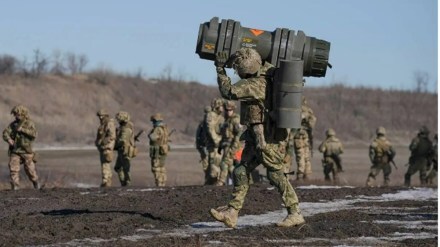As 2022 draws to a close, there is no event this year that has had more impact on the world economy—especially for the global South—than the 11-month long war in Ukraine. Energy prices sky-rocketed to $140 a barrel before falling to current levels of $84 a barrel. The war unleashed the spectre of a full-blown global food crisis, with prices of wheat and other essentials spiralling up. This threatened the food security of many developing countries. High energy and food prices triggered unrest in over 90 countries. The world economy therefore has a huge stake in a negotiated end to the never-ending conflict in Ukraine. The good news in this regard is the talk of an UN-backed peace summit in February 2023. On Monday, prime minister Narendra Modi spoke to Ukraine’s president Volodymyr Zelenskyy, who sought India’s support on the 10-point peace formula he had proposed at the Bali G-20 summit and his US visit. Russia’s president Vladimir Putin, for his part, has stated that he was ready to “negotiate with everyone involved in this process about acceptable solutions” to end the war. However, the tone and tenor of Russian foreign minister, Sergey Lavrov, was different when he said at a recent press conference that Ukraine must surrender or face continued war, according to Bloomberg.
Also read: Go beyond plain vanilla IPOs
What then are the prospects for Ukraine and Russia to smoke the peace pipe? Prima facie they are not so good. Wars end only when both sides feel the need to silence their guns. “Every war ends as a result of the actions taken on the battlefield and at the negotiating table”, to borrow an expression of Ukraine’s foreign minister, Dmytro Kuleba. The reality on the battlefield is that Ukraine has staged stunning military counter-offensives since early September with an increasingly cornered Russia annexing four regions through referenda and mobilising reserves. One of Ukraine’s biggest victories is regaining control over the south-central capital of Kherson after eight months of Russian occupation. Its forces are poised to reclaim annexed territory. Even Putin has admitted that the situation was “extremely difficult” in these four partly-occupied regions. For such reasons, Ukraine definitely feels that it has the military edge to secure a withdrawal of Russian forces from its territory. How then can it surrender as demanded by Lavrov? How can Russia negotiate from a position of weakness? But it is no doubt true that Ukraine is also hurting badly from Russia’s missile strikes that have crippled its energy infrastructure, forcing its citizens to brave out a chilly winter without heating or electricity. Both sides have paid a huge price as 100,000 soldiers on each side have died or been injured.
Also read: Donald Trump’s NFT’s floor price drops 80% in just 10 days
As the G-20 presidency has passed on to India, all eyes will be on how it makes this influential grouping relevant in negotiating an end to the war in Ukraine. Modi conveyed India’s support for any peace efforts in his conversation with Zelenskyy. India’s premier has also been in touch with Putin. The G-20 has seen better days when it played an influential role in steering the world economy out of the economic crisis of 2008-2010, but has failed to provide leadership in the fight against the Covid pandemic. The grouping now has a wonderful opportunity to make a difference on the defining event of this passing year that has devastated the global South.
